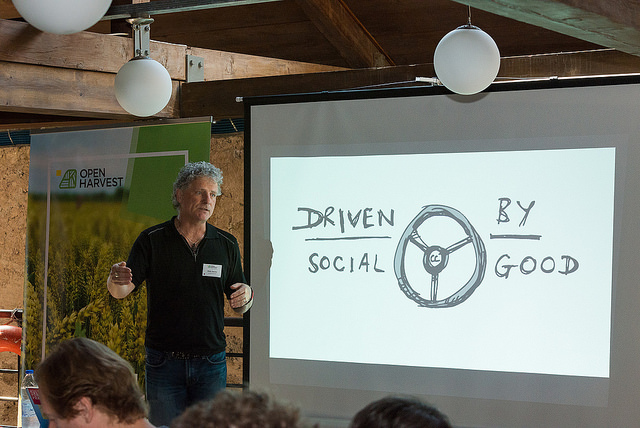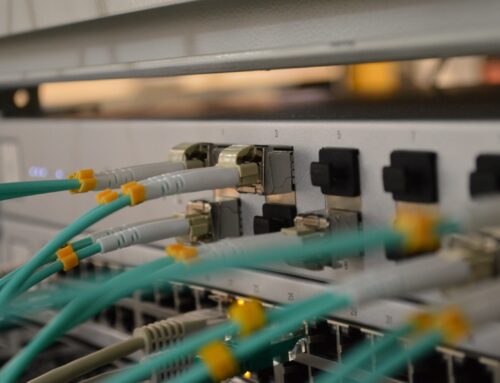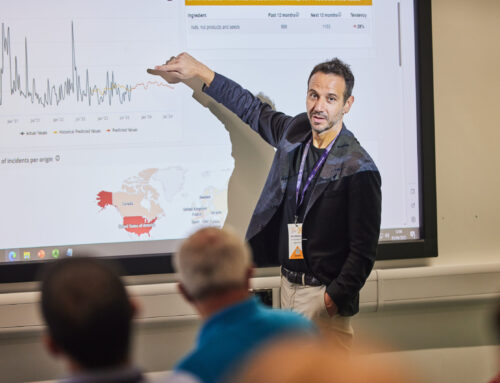
One of the great things about being part of the Knowledge & Learning Systems Working Group (KLSWG) at a private-public network like the Global Food Safety Partnership (GFSP) is that our team (a) works with some amazing people around the world that are pioneering the way that education & training takes place today in our sector; and (b) has a unique opportunity to validate innovative tools & ideas with the people that actually do this for a living and at an important scale.
This is exactly what bright people like Paul Stacey (Associate Director of Global Learning, Creative Commons), Garin Fons (Programs Manager, Center for Open Educational Resources and Language Learning, University of Texas at Austin), and Theresa Bernardo (Founder, One Health Knowledge Initiatives & Associate Professor, Epidemiology and Health Informatics, Michigan State University – and TEDx speaker ? ) did in a concept paper that was just released for discussion & reflection among the GFSP network members. In this concept paper, Paul, Garin and Theresa -that are part of the Open Models subgroup of KLSWG- try to identify open value propositions for GFSP stakeholders and propose a framework for creating and structuring that value. Feel free to take a look at the concept paper and provide your comments and suggestions.
Of course we could not help taking advantage of their great work: in the Database Subgroup, we used their framework for depicting connections between global and local food safety stakeholders in order to illustrate how we believe that the sharing, exchange and discovery of knowledge assets (especially in the form of open resources such as open research data and OER) can take place. The brief full version of our story is presented in the following presentation (UPDATE: I added the complete version that we actually used during the GFSP Working Group meetings in Denmark). Part of this story is also explaining how such a federated backbone may power the food safety community with data discovery services like the centralised GFSP Capacity Provision Discovery demonstrator but also the distributed micro-sites for specific research groups and themes (like food risk analysis).
The timing of the next GFSP meeting is interesting, since its during the same week with the Global Consultation for Open Agricultural Knowledge for Development (GODAN/CIARD Consultation, hosted by FAO of the UN). Our team saw an opportunity in liaising the two communities and creating potential synergies. This is why Effie and Vassilis are going to organise a session on “Open Data for Food and Nutrition: The promises and perils of data sharing and exchange”, where they plan to introduce the Database Subroup’s work in GFSP, relevant initiatives like the Working Groups of the Agricultural Data Interoperability Interest Group of the Research Data Alliance, and to invite participants to share their perspectives and work with us so that we help people share food and nutrition data more and better.
So I do believe that this is a series of small steps that will take us on a journey that will eventually make a big difference. Feel free to join the ride.




